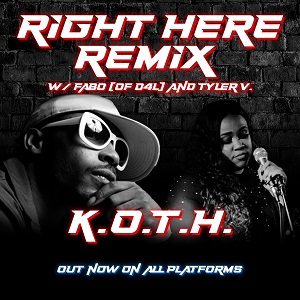
EXCLUSIVE: Spotify Accused Of “Modern Payola” In Second Explosive Class Action This Week
November 04, 2025
Spotify has been hit with a second class-action lawsuit, accusing the streaming giant of committing “modern payola.”
Since 1998, AllHipHop.com has pioneered delivering Hip-Hop news. Get our daily email for exclusive, breaking news, and weekly digests, all curated for the true Hip-Hop enthusiast. Stay connected and informed with the heartbeat of Hip-Hop culture. Subscribe now!
Spotify is being accused of reviving the music industry’s oldest scandal—pay-for-play—in a sweeping new class-action lawsuit filed Tuesday (November 4) in Manhattan federal court.
The 39-page complaint, brought by New York subscriber Genevieve Capolongo, alleges that the streaming giant secretly sells visibility on its playlists through its “Discovery Mode” program and other undisclosed promotional deals, deceiving paying users who believe they’re receiving personalized recommendations.
Capolongo’s suit argues that Spotify “charges listeners for the privilege of being deceived,” alleging the platform’s touted personalization features are tainted by undisclosed commercial influence from record labels willing to accept reduced royalties in exchange for boosted placement.
Filed by Faruqi & Faruqi LLP and Stephan Zouras LLC, the case portrays Spotify’s curation system as a digital echo of radio’s historic payola scandals, stretching back to the 1930s.
The complaint states that Discovery Mode allows artists and labels to “pay” with lower per-stream rates for improved algorithmic exposure, without disclosing that financial incentives influence the content they hear.
“Spotify exploits that trust by marketing itself as a platform that offers organic music recommendations … only to secretly sell those recommendations to the highest bidder,” the lawsuit states.
Capolongo contends that she subscribed believing playlists like “Discover Weekly” and the AI-driven “DJ” were tailored to her tastes, only to realize that mainstream acts such as Drake and Justin Bieber continued to dominate her feed.
“Despite knowing that Spotify’s representations about personalization were false, [Capolongo] continues to suffer ongoing harm each time she uses the platform. She still cannot discern which songs are recommended for legitimate editorial or personalized reasons and which are promoted due to undisclosed commercial arrangements. As a result, [Capolongo] remains deprived of the ability to make informed choices about the music she listens to and pays for, and she continues to be exposed to Spotify’s deceptive conduct on a recurring basis,” Capolongo’s lawyer Innessa M. Huot explained.
She seeks restitution, punitive damages and a court order requiring Spotify to disclose when money or royalty discounts shape recommendations.
The filing accuses Spotify of violating New York’s false advertising and deceptive practices statutes, as well as of unjust enrichment. It also claims the company’s undisclosed promotional tactics breach Federal Trade Commission endorsement guidelines, likening playlist inclusion to an unmarked ad.
Spotify has not yet responded publicly to the complaint.
The new lawsuit lands just days after another major class-action was filed by West Coast rap veteran RBX, who accuses Spotify of ignoring billions of “fraudulent” or bot-generated streams that allegedly inflated superstar numbers, particularly those tied to Drake, while shrinking royalty payouts for smaller artists.
As AllHipHop previously reported, RBX’s complaint alleges that Spotify’s failure to police artificial streams has “cost legitimate performers millions” by distorting the pool of available royalties. Spotify denied wrongdoing in that case, insisting it “in no way benefits from the industry-wide challenge of artificial streaming.”
With two separate federal class actions filed in a single week, one concerning hidden playlist payments and another alleging streaming fraud, the world’s largest music platform faces mounting legal scrutiny over how its algorithms, payouts, and partnerships influence what millions of listeners hear.
View Original Source
Breaking News
- Chuck D Blames Music Executives For Rap’s Short-Lived Billboard Absence
- Malaysian Rapper Namewee In Custody As Death Of Taiwanese Influencer Becomes Murder Probe
- EXCLUSIVE: Spotify Denies Payola Allegations In New Class Action
- 50 Cent Declares NYC “Dead” After Zohran Mamdani Becomes Mayor
- EXCLUSIVE: Busta Rhymes Accused Of Trying To Silencing Ex-Assistant With Defamation Suit
- DJ Premier Calls Out D’Angelo Funeral Attendees Who Violated Privacy Policy
- A$AP Rocky Accused Of Ruining Neighbor’s $6.5M Condo Due To Burst Pipes
- GloRilla Surprises Dad With Luxury Car After 29-Year Postal Career
- Cher “Having A Blast” With Rapper Boyfriend Despite 40-Year Age Gap
- UK Drill Rapper Tion Wayne Uses Rolls-Royce To Block Busy Road For Video, Police Respond



